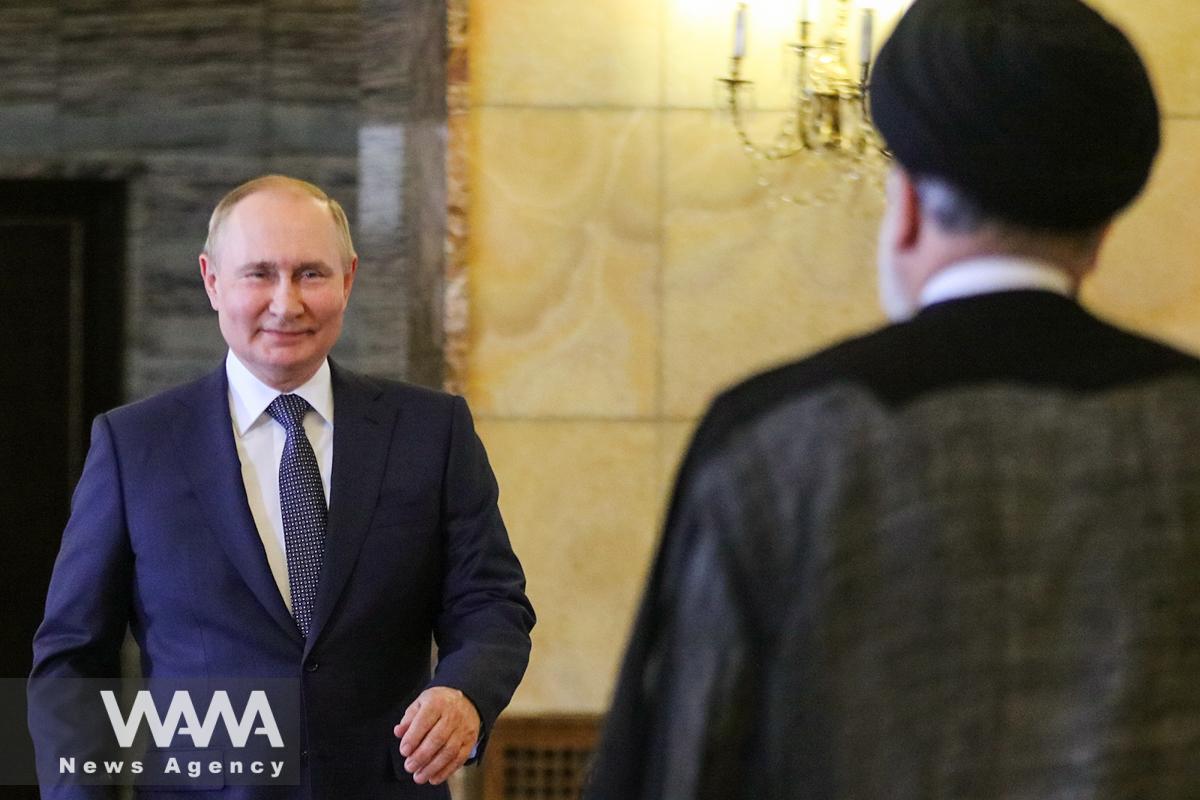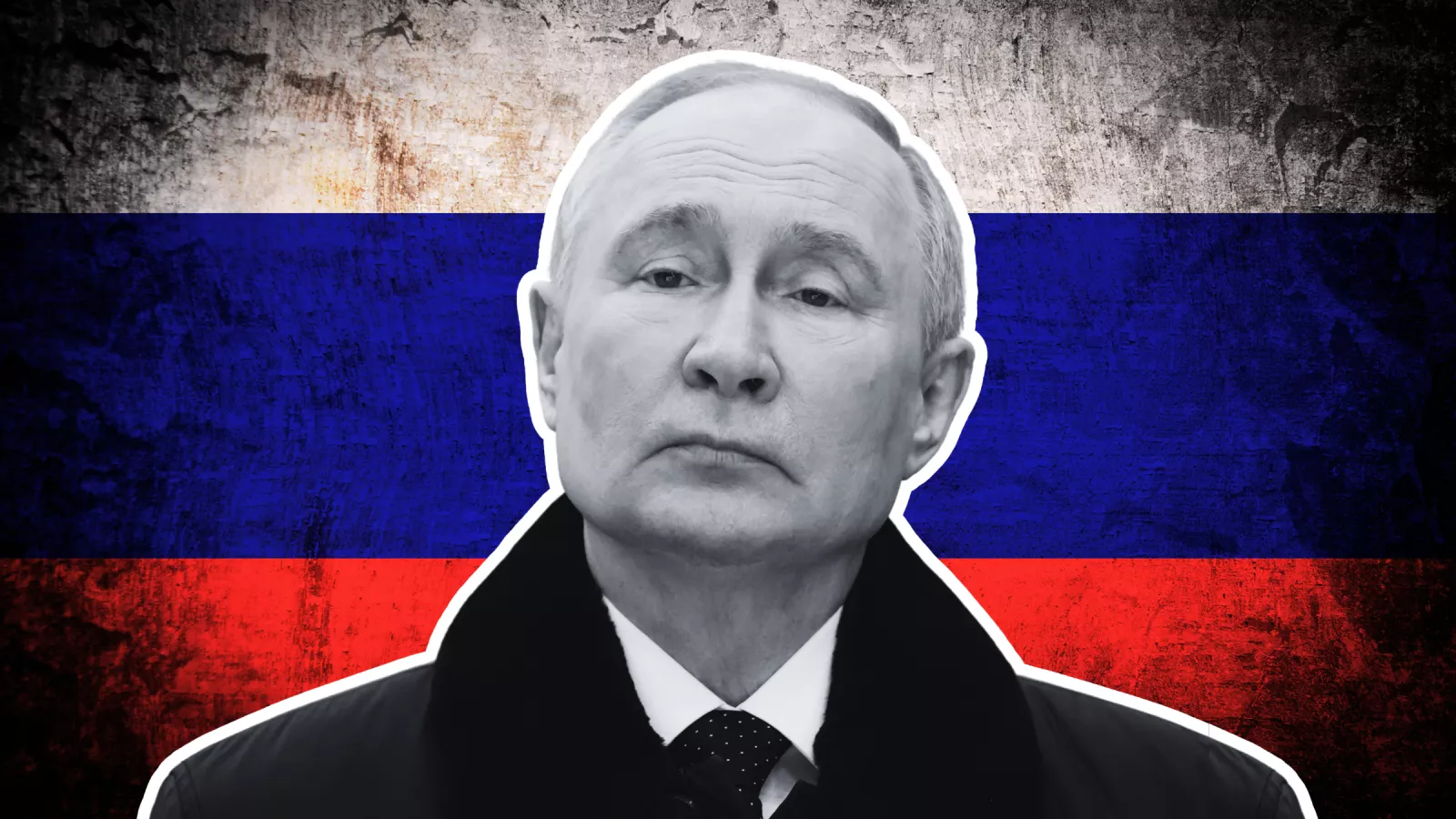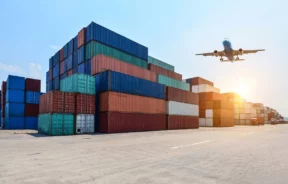Putin and the Great Game in the Middle East: Mediation or Power Play?
WANA (Oct 20) – Once again, Russian President Vladimir Putin has positioned himself at the center of global crises. This time, he has offered to mediate between Iran and Israel in one of the most dangerous and complex regional conflicts.
But can Putin truly change the course of events in the Middle East, or is this just another power play that may lead to no concrete results? In the midst of all this, is Russia genuinely acting as an impartial mediator, or is it merely seeking to expand its influence in this sensitive region?
In a recent interview with BRICS media, Putin highlighted Russia’s unique relationships with both sides. Israel and Russia share deep ties; a third of Israelis are of Russian or Ukrainian origin. However, Russia’s relationship with Iran is far more complex.

An Iranian man passes in front of a sign that says “Made in Russia” during the International Oil, Gas, and Petrochemical Exhibition in Tehran, Iran, May 17, 2023. Majid Asgaripour/WANA (West Asia News Agency)
Tehran and Moscow, united by shared sanctions and isolation from the West, have found common ground. For Iran, Russia is seen as a reliable partner in gaining access to advanced defensive equipment. Rumors about Russia supplying sophisticated missile systems to Iran are just one example.
The key question, however, is whether Russia can truly play the role of an impartial and genuine mediator in such a complex relationship. Putin may use his connections with both Israel and Iran as an opportunity to showcase his diplomatic prowess, but his ambitions to strengthen Russia’s standing in the Middle East should not be overlooked.

Will Putin Favor Israel Over Iran?
WANA (Oct 13) – Nearly three years into Russia’s military invasion of Ukraine, it appears that the situation has never been more promising for the Russians. Following the start of the war, Russia began establishing relations with Palestinian delegations and even hosted Hamas representatives. Moscow’s gesture was so well-executed that Palestinian officials publicly expressed […]
With the U.S. reducing its presence in the region and the White House’s new policies taking a step back from Middle Eastern conflicts, Putin is seizing the opportunity to fill this void. The U.S., once the main peace broker in the region, now seems more interested in maintaining an unstable balance rather than pursuing long-term peace. Historically, the U.S. has pursued its own strategic goals in the region, including the well-known “New Middle East” initiative, which may have led to more conflict than peace.
Meanwhile, Putin has cleverly positioned Russia as a power genuinely seeking peace. This marks a historical shift that could provide Russia with a new status on the international stage, but whether Putin will succeed remains to be seen.
It’s important to note that Iran and Israel are not the only key players in this complex game. Turkey, Saudi Arabia, the UAE, and other Gulf states also have significant interests in this crisis. If Putin can engage these powers in his mediation efforts, his chances of success would greatly increase. Moreover, Russia’s relations with these key players, especially with Turkey—a major military and economic force in the region—will heavily influence the outcome of these negotiations.

Kremlin: Putin Eager to Meet with Pezeshkian
WANA (July 29) – Dmitry Peskov, the Kremlin spokesman, mentioned that the new President of the Islamic Republic of Iran has previously been invited by Russia to participate in the BRICS summit in Kazan. He emphasised that Russian President Vladimir Putin is eager to meet with Masoud Pezeshkian. Peskov stated that Iran, as one […]
Israel also finds itself in a unique situation. The hardline ideology of its government, which seeks to expand its influence “from the Nile to the Euphrates,” sees little need for peace. As long as the U.S. continues to stand behind Israel and provides it with all the financial and military support it requires, why should Israel agree to a ceasefire? These conflicts are not just military battles; they are political tools for Tel Aviv to maintain regional dominance and weaken its enemies. On the other hand, radical Palestinian groups, having long lost faith in diplomacy, will also pose obstacles to any peace agreement.
In this context, Putin has a different view on Palestine and possible solutions to this crisis. He firmly asserts that expelling Palestinians from their land is impossible and that their rights must be restored. This statement is a reminder of the historical Oslo Accords—a treaty that, instead of bringing peace, became an opportunity for Israel, with U.S. backing, to further undermine Palestinian rights.
Today, the Middle East resembles a powder keg, where even a single spark could set off a massive explosion. With European countries openly siding with Israel and the U.S. seen as the main catalyst for unrest, Russia stands as the only power with balanced relations with both sides. If Putin’s mediation plan is rejected, a darker scenario could unfold.

Is Russia the strategic ally of Iran?
WANA (DEC 30) – The relationship between Iran and Russia has had many ups and downs in recent years. Some experts interpret Iran-Russia relations as a strategic alliance. Some believe that Russia is looking for enmity with Iran, and as a result, there should not be cooperation with this country. With the start of […]
If the region spirals into an all-out war, not only Middle Eastern countries but other global powers will also be drawn into the conflict. Even those who now claim neutrality will inevitably get involved sooner or later. Given the strategic importance of this region as a major energy source and a global transit hub, a war of this magnitude could easily pave the way for the start of a third world war.
Putin’s proposal presents a historic opportunity for Russia to portray itself as a power genuinely seeking peace. However, at the same time, if this ambitious plan fails, it could plunge the region into an unprecedented crisis—one that might lead to the collapse of the current order in the Middle East.













